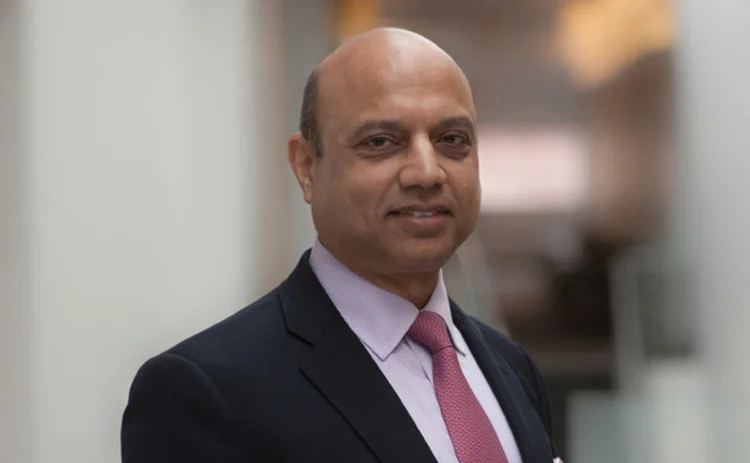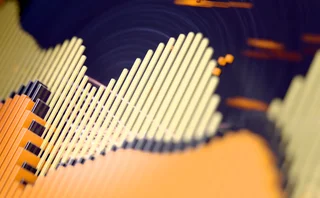
Asset manager of the year: Vanguard
Funds giant embraces non-bank liquidity and fungible derivatives

Risk Awards 2016
US mutual fund assets under management at Vanguard have grown by more than $1 trillion since 2012 – from $1.6 trillion to $2.7 trillion at the end of 2015 – while assets under management globally stand at more than $3 trillion. The huge jump in assets has fundamentally changed the firm's liquidity needs at a time when far fewer banks are willing to facilitate large-scale risk transfers.
That has spurred Vanguard to play a vocal role in the ongoing industry debate about regulation, market structure and liquidity. "If something will benefit our funds then we will push that forward and throw resources at it," says Sam Priyadarshi, head of fixed-income derivatives at Vanguard. "We will participate in industry discussions and push for these changes for the benefit of our fund holders and for the market in general."
For instance, the firm believes asset managers should be granted full access to interdealer liquidity pools, which have historically been the domain of the largest banks.
"We would like access to the interdealer broker market for a couple of reasons. First, to see the liquidity that is not available on dealer-to-client swap execution facilities (Sefs) and be able to see for ourselves whether there is or isn't liquidity there. Second would be the ability to make two-way markets when it suits us," says Priyadarshi.
A number of issues must still be ironed out on that front, such as post-trade name give-up – where counterparty names are revealed to each other once a trade is complete – and average pricing and trade allocation capabilities for the buy side.
In the meantime, the firm supports non-bank liquidity, and now transacts a significant portion of its interest rate swaps business with a non-bank market-maker that is active on Bloomberg and Tradeweb. It also trades US Treasuries and other cash instruments with non-bank market-makers at multiple venues.
"I don't want us to cling to the past," says John Hollyer, head of global risk management for Vanguard's investment management group. "For all the controversy about equities, over the past 20 years there has been a tremendous improvement in efficiency and cost because of computers. We know the headlines of abuse, but by and large they are efficient and help the market – we're interested in all of that. In US Treasuries, we're taking these new market-makers very seriously."
Vanguard has changed its behaviour in other ways, too, when it sees the prospect of greater market efficiency and liquidity. Last year, the firm's derivatives group stopped trading a number of traditional swaps that were not suited to electronic trading, replacing them with market agreed coupon (Mac) swaps, which are more standardised. Mac swaps now account for the bulk of Vanguard's swaps book by volume and in notional terms.
I don't want us to cling to the past. For all the controversy about equities, over the past 20 years there has been a tremendous improvement in efficiency and cost
John Hollyer, Vanguard
"We trade a lot of Mac swaps. We're big proponents of it," says Priyadarshi. "We moved a lot of our swaps trading to Mac swaps starting in 2014 and that has continued this year. The fact it's the same coupon means we can trade in and out faster, and Mac swaps are cheaper to trade as well – bid/offers are tighter and there is more liquidity."
Vanguard is also committed to trading on Sefs wherever possible. That includes products that have not yet been ‘made available to trade' (Mat) and are therefore required to be executed on Sefs.
"So-called broken-dated swaps, for example, we trade on-Sef even though we can trade them off-Sef," says Priyadarshi. "We prefer not doing it over the phone or via email, even if the rules allow it. We would prefer that all products stayed on-Sef because it's advantageous for us, provided dealers are ready."
Unfortunately for Vanguard, not all dealers are ready, he claims: "We even want swaps in other currencies – regardless of whether they are Mat or non-Mat – to be traded on Sef. We find that while dealers are willing to provide US dollar swaps in Mat and non-Mat, they only want to provide liquidity in Mat swaps when it comes to sterling and euro swaps."
Only users who have a paid subscription or are part of a corporate subscription are able to print or copy content.
To access these options, along with all other subscription benefits, please contact info@risk.net or view our subscription options here: http://subscriptions.risk.net/subscribe
You are currently unable to print this content. Please contact info@risk.net to find out more.
You are currently unable to copy this content. Please contact info@risk.net to find out more.
Copyright Infopro Digital Limited. All rights reserved.
As outlined in our terms and conditions, https://www.infopro-digital.com/terms-and-conditions/subscriptions/ (point 2.4), printing is limited to a single copy.
If you would like to purchase additional rights please email info@risk.net
Copyright Infopro Digital Limited. All rights reserved.
You may share this content using our article tools. As outlined in our terms and conditions, https://www.infopro-digital.com/terms-and-conditions/subscriptions/ (clause 2.4), an Authorised User may only make one copy of the materials for their own personal use. You must also comply with the restrictions in clause 2.5.
If you would like to purchase additional rights please email info@risk.net
More on Awards
Best user interface innovation: J.P. Morgan
J.P. Morgan wins Best user interface innovation thanks to its Beta One portfolio solution
Market liquidity risk product of the year: Bloomberg
Bringing clarity and defensibility to liquidity risk in a fragmented fixed income market
FRTB (SA) product of the year: Bloomberg
A globally consistent and reliable regulatory standardised approach for FRTB
Best use of cloud: ActiveViam
Redefining high-performance risk analytics in the cloud
Best use of machine learning/AI: ActiveViam
Bringing machine intelligence to real-time risk analytics
Collateral management and optimisation product of the year: CloudMargin
Delivering the modern blueprint for enterprise collateral resilience
Flow market-maker of the year: Citadel Securities
Risk Awards 2026: No financing; no long-dated swaps? “No distractions,” says Esposito
Pricing and analytics: fixed income – Quantifi
Quantifi delivers high-performance, transparent and adaptable pricing and risk analytics for fixed income and credit markets







